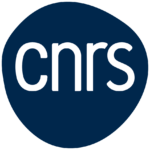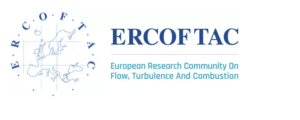CONFERENCE
Mathematics of fluids in motion: Recent results and trends
Fluides en mouvement : résultats récents et perspectives
11 – 15 November, 2024
Scientific Committee
Comité scientifique
Anne-Laure Dalibard (Sorbonne Université)
Reinhard Farwig (Technical University of Darmstadt)
Jiri Neustupa (The Czech Academy of Sciences)
Organizing Committee
Comité d’organisation
Raphaël Danchin (Université Paris-Est Créteil Val de Marne)
Šárka Nečasová (The Czech Academy of Sciences)
The conference is dedicated to the theoretical analysis of models in fluid mechanics. This is a vast subject, which has been studied by mathematicians around the world for almost a century. We want to focus on four topics that recently showed a considerable progress. Several inter-nationally recognized experts, who contributed to significant results, have already preliminarily accepted our invitation for plenary lectures.
The four mentioned topics are:
1. Blow-up phenomena in partial differential equations governing the evolution of fluids,
2. Non-uniqueness results,
3. Results on fluid-structure interaction and flows in moving domains,
4. Mathematical analysis of recently derived models, e.g. on motion of bi-fluids.
We want to create a fertile ground for discussion and exchange of ideas between participants belonging to different mathematical schools and generations. This is why we aim at inviting both a large number of promising young scholars, and more experienced researchers that are experts in at least one of the above mentioned fields. The conference program will be developed along these lines: it will include a number of talks on “hot” topics, but will also leave room for informal discussion.
The meeting will continue the spirit of the Vorticity, Rotation and Symmetry conference series that was organized every three years at CIRM by researchers from three different countries (Czech Republic, France and Germany) with rather distinct mathematical cultures. The last of these conferences took place in October 2020 in the hybrid mode and in a reduced form due to the pandemic. Organizing the conference Mathematics of Fluids in Motion: Recent Results and Trends four years after, we almost completely renew the topics and the list of speakers.
La conférence est consacrée à l’analyse théorique de modèles de mécanique des fluides. Il s’agit d’un vaste sujet qui est activement étudié par des mathématiciens du monde entier depuis près d’un siècle. Dans ce projet de conférence, nous avons retenu les quatre thématiques suivantes qui ont récemment connu des avancées spectaculaires :
1. les phénomènes d’explosion pour des systèmes d’équations aux dérivées partielles régissant l’évolution de fluides;
2. les résultats de non unicité,
3. l’étude de modèles d’interaction fluide-structure,
4. l’étude mathématique de modèles de bifluides.
En organisant cette conférence, nous espérons créer un terreau fertile pour l’échange d’idées entre des participants appartenant à des écoles mathématiques et des générations différentes. Nous inviterons à la fois de nombreux jeunes chercheurs prometteurs, et des chercheurs plus expérimentés, experts dans au moins un des domaines mentionnés ci-dessus. Le programme de la conférence sera élaboré dans ce sens : il comportera à parts égales des exposés donnés par des experts ou des jeunes chercheurs, et laissera également la place à des discussions informelles.
Notre projet a été inspiré par la série de conférences Vorticité, Rotation et Symétrie qui ont été organisées tous les trois ans au CIRM entre 2008 et 2020 par un comité tricéphale composé de chercheurs de trois pays différents (République tchèque, France et Allemagne) de cultures mathématiques distinctes. La dernière de ces conférences a eu lieu en octobre 2020 en mode hybride et sous format réduit en raison de la pandémie. L’organisation de la conférence fluides en mouvement : résultats récents et perspectives quatre ans après sera l’occasion de renouveler entièrement les thèmes et la liste des participants.
TALKS
Dallas Albritton (University of Wisconsin-Madison) Instability and Non-uniqueness in Incompressible Fluids
Thierry Gallay (Université Grenoble Alpes) The long way of a viscous vortex dipole
David Gérard-Varet (Université Paris Cité) Correction to the Doi model for the dynamics of suspensions
Alexander Kiselev (Duke University) Suppression of chemotactic blow up by active scalar
Xian Liao (Karlsruhe Institute of Technology) Two-dimensional Navier-Stokes equations with variable viscosity coefficient
Takayoshi Ogawa (Tohoku University) Endpoint Maximal Regularity in BMO and its Application to Fluid Mechanics
Charlotte Perrin (Aix-Marseille Université) A one-dimensional model for suspension flows
Vlad Vicol (New York University) The geometry of maximal development and shock formation for the Euler equations in multiple space dimensions
Zhifei Zhang (Peking University) Stability threshold of 2-D Couette flow for the Navier-Stokes equations
OTHER TALKS
Jean-Yves Chemin (Université Lyon 1) Non linear equivalence of some scaling invariant norms for solutions of incompressible Navier-Stokes equations
Noboru Chikami (Tohoku univeristy) On well-posedness of the Hardy-Hénon parabolic equations in weighted Lorentz spaces
Elisabetta Chiodaroli (University of Pisa) Density of wild data for the Euler system of gas dynamics
Dimitri Cobb (Hausdorff Center for Mathematics, Bonn) Global Existence and Uniqueness of Unbounded Solutions in the 2D EulerEquations
Francesco Fanelli (BCAM, Bilbao) Ekman layers in presence of topography
Anatole Gaudin (Université Aix-Marseille) Nearly optimal regularity for the Stokes-Dirichlet problem in rough domains
Tej-Eddine Ghoul (NYU Abu Dhabi) Singularity formed by the collision of two collapsing solitons in interaction for the 2D Keller-Segel system
Rafael Granero Belichón (University of Cantabria) On the free boundary problem for the Stokes-transport system
Zineb Hassainia (NYU Abu Dhabi) On the desingularization of time-periodic vortex motion in bounded domains
Matthias Hieber (Technische Universität Darmstadt) Analysis of Liquid Crystal Flows
In-Jee Jeong (Seoul National University) Rate of vortex stretching for axisymmetric Euler flows without swirl
Martin Kalousek (Institute of Mathematics, Czech Academy of Sciences) Existence of weak solutions to a Baer–Nunziato type system
Ondřej Kreml (Institute of Mathematics, Czech Academy of Sciences) Time-periodic solutions to an interaction problem between compressible viscous fluids and viscoelastic beams
Pierre-Gilles Lemarié-Rieusset (Université d’Évry) Remarks on the uniqueness problem for L2 solutions of the 2D Navier-Stokes equations
Yong Lu (University of Nanjing) Qualitative/quantitative homogenization of some non-Newtonian flows in perforated domains
Václav Mácha (Czech Academy of Sciences) Local-in-time existence of strong solutions to a compressible non-Newtonian Navier-Stokes equations
Benjamin Mélinand (Université Paris Dauphine) Rigid lid limit for inviscid shallow water equations with a flat bathymetry
Boris Muha (University of Zagreb) The Role of Dissipation in the Existence of Time-Periodic Solutions to PDE Systems
Milan Pokorný (Charles University) Steady compressible Navier–Stokes–Fourier system with temperature dependent viscosities
Christophe Prange (Université de Cergy Paris) On symmetry breaking for the Navier-Stokes equations
Ana Silvestre (University of Lisbon) Steady motion of a self-propelled rigid body in a viscous incompressible fluid with Navier boundary conditions
Maja Szlenk (University of Warsaw) Construction of weak solutions to a model of pressureless viscous flow driven by nonlocal attraction–repulsion
Takeo Takahashi (Institut Elie Cartan) The Prodi-Serrin condition for a fluid-rigid body system
Patrick Tolksdorf (Karlsruhe Institute of Technology) Kato’s Square Root Property for the Generalized Stokes Operator
Aneta Wróblewska-Kamińska (Polish Academy of Sciences) From compressible to incompressible, MHD with non-conservative boundary condition
Arghir Zarnescu (BCAM, Bilbao) On the effect of a large cloud of rigid particles on the motion of on a incompressible fluid






